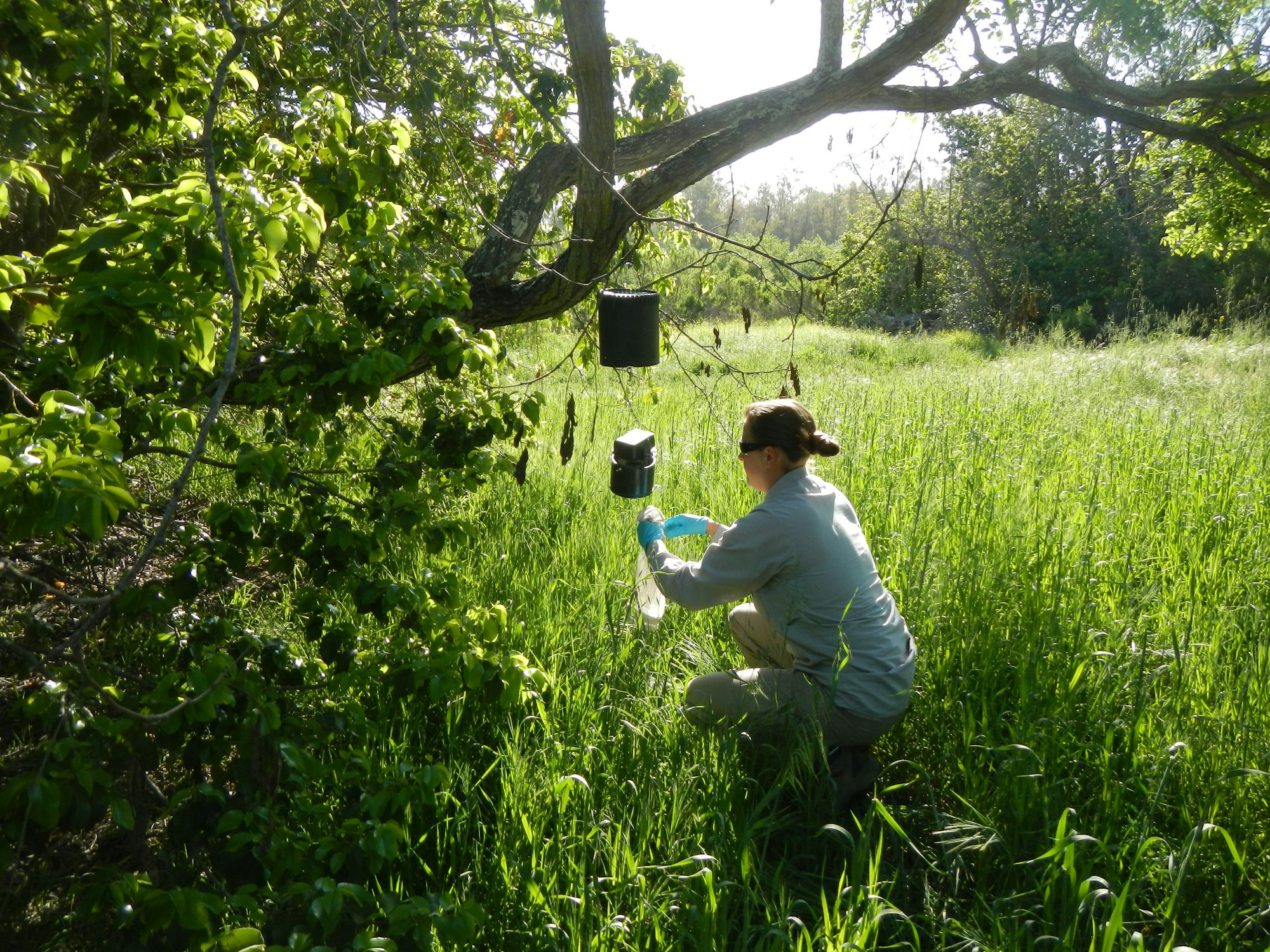Surveillance
Comprehensive Mosquito Prevention
Our vector and disease surveillance program prevents mosquitoes and arthropod-borne diseases from becoming a serious problem.

Our team...
- Discovers New Sites of Larval Development
- Studies Vector Population Densities and Species Composition
- Assesses the Level of Public Health Risk
- Allocates Control Efforts
- Responds to Public Reports of Infestations
Vector Surveillance
Our staff regularly inspects for mosquitoes in stagnant water in catch basins, vaults, drains, wastewater treatment plants, under buildings, in horse and cattle troughs, pools, ponds, gutters, flood control basins, flower pots, tree holes, abandoned tires, creeks, marshes and estuaries. To catch adult mosquitoes, we use:

- BG Sentinel Traps
- Gravid Traps
- Carbon Dioxide Traps (uses dry ice as the CO2 source)
- Disease Monitoring
Read here about the traps we use:
Aedes Trap Info Sheet.pdfThree types of pathogenic mosquito-borne encephalitis occur in California: Western equine encephalomyelitis, St. Louis encephalitis, and West Nile virus. These viruses are carried by birds and transferred to horses or humans through infected mosquitoes.
There are no specific treatments or vaccines for the three diseases. We collect mosquitoes and dead birds and have them tested for these viruses. If a sample tests positive for one of these viruses, we issue a public advisory and intensify our monitoring and control efforts.
